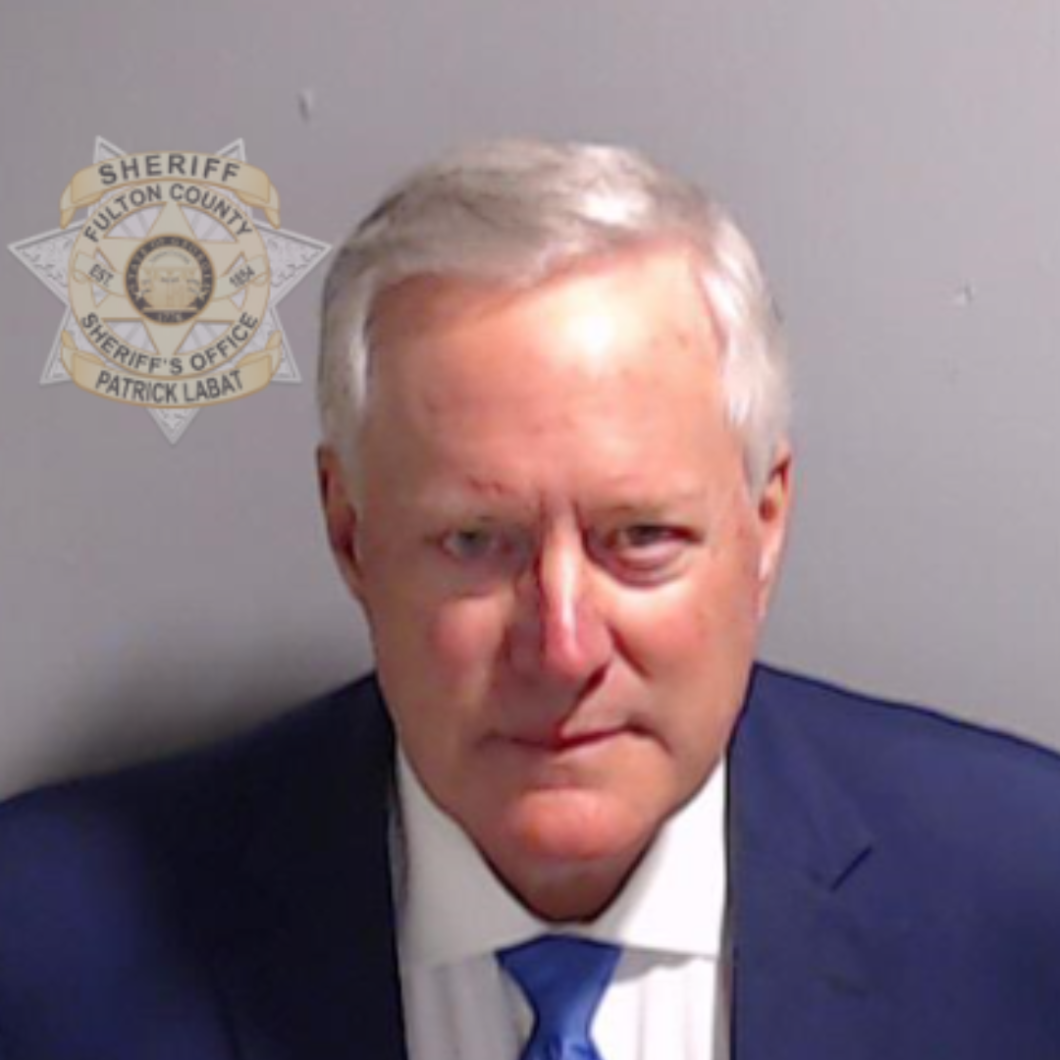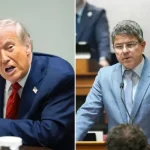
Former White House chief of staff Mark Meadows on Friday rejected accusations from Fulton County, Georgia, prosecutors that he violated the Hatch Act while working on behalf of President Donald Trump as he challenged the 2020 election results.
Ahead of a hearing on his bid to remove his state criminal case to federal court, Meadows said District Attorney Fani Willis‘s citation of an alleged Hatch Act violation is a “red herring” that doesn’t warrant discussion at a state-level court proceeding. The federal law blocks members of the executive branch, except the president and vice president, from engaging in political activity.
MUGS OF MAGA: MUG SHOTS OF TRUMP AND CO-DEFENDANTS RELEASED IN GEORGIA RICO CASE

The former chief of staff was notably present during a post-election call with Georgia Secretary of State Brad Raffensperger when Trump asked him to “find” the exact number of votes needed to offset his 2020 election defeat in the Peach State.
Meadows’s counsel argues that just because Trump was engaging in a personal or political act does not mean that what he was doing as an assistant or adviser also constituted a political or personal action. Meadows’s counsel made his removal bid based on a long-standing federal statute that allows federal officials charged with state crimes to move them to federal court if the alleged criminal behavior was carried out as part of a person’s official duties.
“Mr. Meadows need not prove that his conduct complied with federal law in retrospect; he is entitled to immunity because he acted in good faith to further what he understood to be his official duties,” Meadows’s counsel wrote in a Friday filing.
“The Hatch Act is a red herring, particularly at this stage. Any dispute about the Hatch Act is a proper matter for the federal court after removal,” the filing added.
In her Thursday filing, Willis argued that Meadows violated the Hatch Act by facilitating Trump’s efforts to challenge his 2020 election results in Georgia.
“The activities are precisely the type which other courts have already determined to be ‘unofficial’ and therefore beyond the color of the defendant’s office, and he can point to no presidential authority that would bring the activities within the scope of his official duties,” Willis added.
U.S. District Judge Steve C. Jones will consider the issue at an evidentiary hearing on Monday, and he released an order Friday stating that members of the media will be allowed to carry their laptops into the courtroom to document the hearing.
Willis on Thursday issued subpoenas for Raffensperger and his then-investigator Frances Watson to testify at the hearing. Meadows helped arrange a meeting between Trump and these officials and says those actions were “within his conduct as chief of staff.”
In a separate call, Trump asked Watson to take election-related actions on his behalf, though Willis’s team accuses Meadows of offering to fund her office.
“Is there a way to speed up Fulton county signature verification in order to have results before Jan 6 if the trump campaign assist financially,” Meadows asked her in a text message, according to the indictment.
Meadows previously sought to delay his arrest ahead of a Friday at noon deadline to surrender himself. Jones denied his request along with a similar one from former Trump Justice Department official Jeffrey Clark, setting a hearing for that defendant’s request on Sept. 18.
CLICK HERE TO READ MORE FROM THE WASHINGTON EXAMINER
Meadows was charged last week with racketeering and solicitation of violation of oath of by a public officer in connection with actions he took following the 2020 elections. He and Clark are two of 17 defendants including Trump to be charged in the sweeping indictment.
The former chief of staff surrendered to authorities on Thursday and was granted a $100,000 bond and had his booking photo published.





